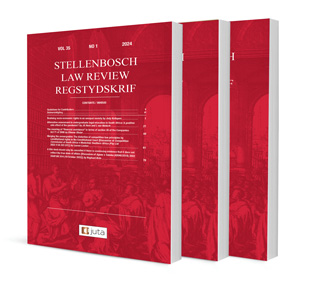The Labour Court’s jurisdiction to order the payment of just and equitable compensation for loss attributable to strikes: An analysis of SACCAWU v Massmart Holding Ltd

NOTES
The Labour Court’s jurisdiction to order the payment of just and equitable compensation for loss attributable to strikes: An analysis of SACCAWU v Massmart Holding Ltd
Author: M E Manamela
ISSN: 1996-2177
Affiliations: Professor of Law, University of South Africa
Source: South African Law Journal, Volume 142 Issue 1, p. 38-50
https://doi.org/10.47348/SALJ/v142/i1a4
Abstract
Chapter IV of the Labour Relations Act 66 of 1995 gives effect to the right to strike and provides for protected and unprotected strikes. In terms of s 68(1)(b), the Labour Court has exclusive jurisdiction to order the payment of just and equitable compensation for loss attributable to a strike or conduct that does not comply with chap IV. This note analyses the Labour Appeal Court’s findings in SACCAWU v Massmart Holding Ltd (2024) 45 ILJ 1610 (LAC), in which the union raised an exception that the Labour Court did not have jurisdiction to order the payment of a just and equitable compensation for loss attributable to a protected strike or conduct. The Labour Appeal Court also found that the Labour Court has exclusive jurisdiction in this regard. The note asserts that the judgment has far-reaching implications, as it affirms that the Labour Court is a specialist court that deals with labour disputes.

